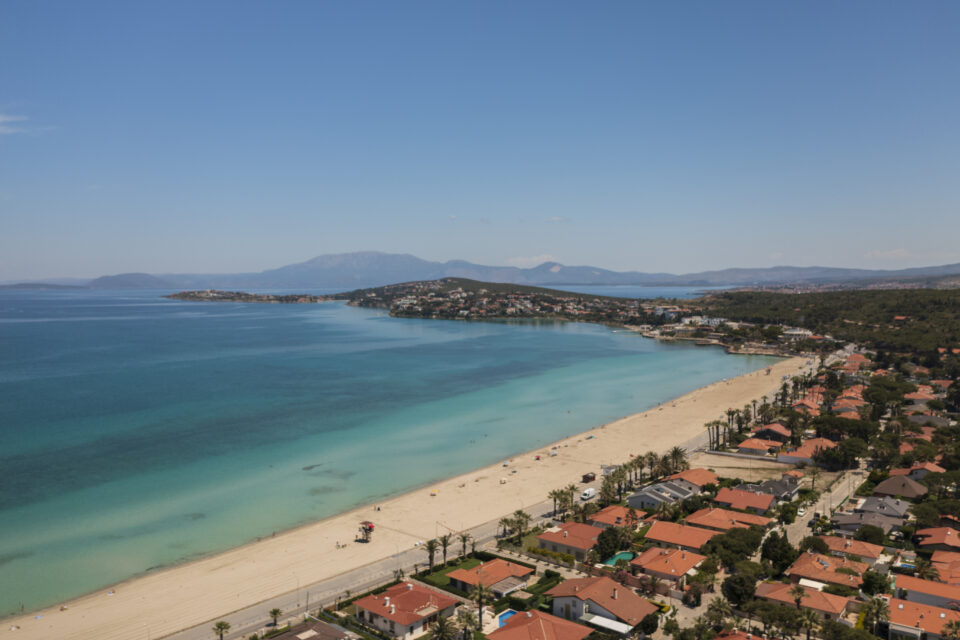The adoption of the “Zero Waste” resolution, put forth by Türkiye at the United Nations (UN) General Assembly as part of the sustainable development plan, has prompted the international community to commemorate 30 March International Zero Waste Day for the second time. Bringing attention to this issue, the annual International Zero Waste Day (March 30) represents a collective endeavour to ensure that future generations inherit a clean and habitable planet through waste management governed by the principles of sustainable development.
The Zero Waste Movement, which raises international awareness of Türkiye’s initiatives, proposes preventing waste, reducing the amount of environmentally harmful waste, increasing recycling rates, providing economical savings, effectively using natural resources, and supporting sustainable development through all these initiatives.
Waste-Free and Minimal-Waste Turkish Cuisine
Waste-free cuisine is a critical component of a waste-free lifestyle. As less waste is generated in the kitchen daily, a waste-free society and – as a result – a better world become possible. Understanding zero-waste restaurants, which are fundamental for sustainable food and the future, is a critical element in Turkish cuisine, a sustainable gastronomy on both an ecological and cultural level.
Nourished by Türkiye’s fertile geography and Anatolia’s rich cultural heritage, ancient Turkish culinary traditions use everything and produce no waste. Turkish cuisine, combining centuries-old processes with local ingredients and original recipes, has long been characterised by spontaneity and natural waste reduction. In Turkish-style cookery, leftover ingredients become new dishes. For example, vegetable peels are used in salads or on their own, while fruit peels can be made into jams. Similarly, stale bread is deployed in various dishes and desserts, and leftover rice is consumed in soups or rice pudding desserts. In this way, waste-free Turkish cuisine provides a culinary experience. It contributes to a more sustainable future by encouraging a lifestyle that considers environmental and social responsibilities and better uses food resources.
Türkiye’s Sustainable Tourism Programme and Sustainable Transformation in Tourism
Türkiye, helping to raise global awareness through the 30 March International Zero Waste Day, has also initiated a comprehensive sustainable transformation of the tourism sector in recent years. In 2022, Türkiye became the first country in the world to sign a governmental agreement with the Global Sustainable Tourism Council (GSTC), which establishes and manages global standards for sustainable travel and tourism and has an exemplary roadmap that facilitates adaptation by the Sustainable Tourism Programme. Starting with accommodations, the programme expands to tour operators and destinations to incorporate sustainability principles across the tourism ecosystem. As of March 25, 2024, the total number of documented/certified accommodation facilities in Türkiye had reached 17,393, with 871 certified, with the objective of all facilities in Türkiye obtaining the Sustainable Tourism Certificate by 2030. Waste management (reducing, separating, reusing and recycling waste), a requirement of Türkiye’s Sustainable Tourism Programme, is also a condition of the Zero Waste Movement to protect the environment. As a result, the Sustainable Tourism Programme, implemented by legal regulations, strengthens Türkiye’s zero-waste efforts and serves as an essential model for sustainable cities and tourism.
A natural wonder with its green ecosystem, Türkiye has long used environmental labels to certify its blue waters. With 551 Blue Flag beaches, Türkiye has the third-most Blue Flag beaches of any country worldwide under the Blue Flag programme, one of the world’s most critical environmental labels. In addition, Türkiye has made significant strides in cultural sustainability in recent years, becoming the world’s second-ranked country with 21 UNESCO World Heritage Sites and 30 UNESCO Intangible Cultural Heritage elements. Türkiye, undergoing a historical transformation due to archaeology research, intends to increase this figure to 750 in 2024 and 800 in 2026, with 720 excavations planned for 2023.

